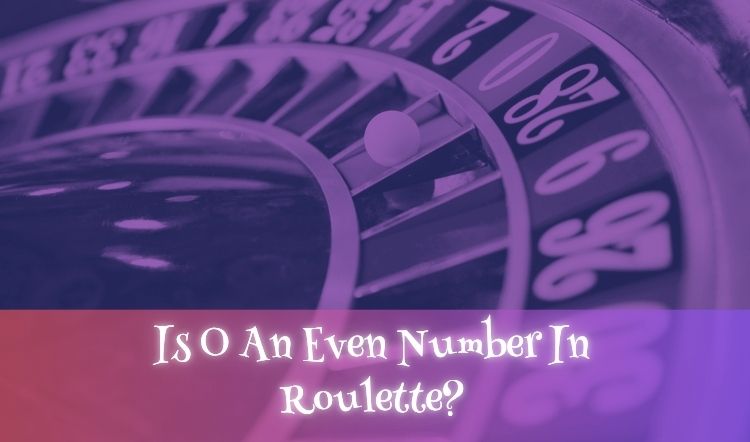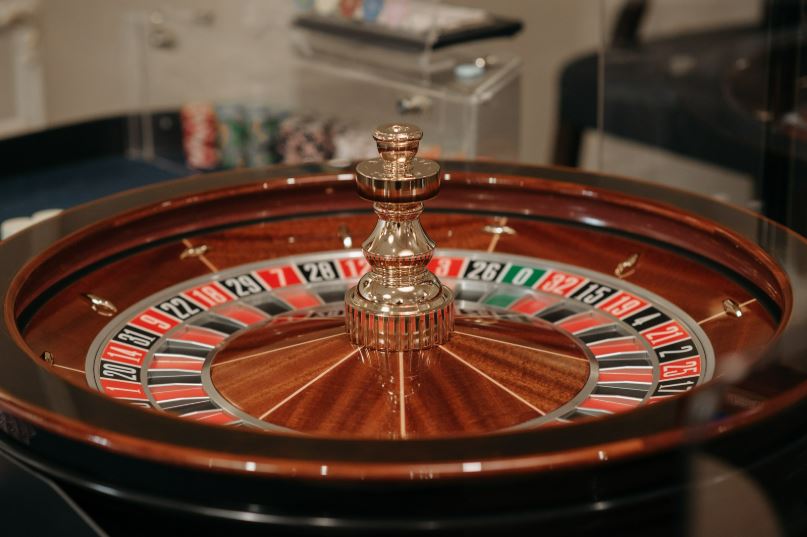
Roulette has long been a staple in both land-based and online casinos, known for its simple gameplay, spinning wheel, and the entertainment of wondering where the ball will land. Its enduring appeal lies in the balance of chance and choice, making it a favourite among casual players and seasoned gamblers alike.
However, like many casino games, roulette comes with its fair share of quirks. One question that often arises—particularly among those new to the game—is whether the number zero (0) is classed as even.
In this blog post, we’ll explore the role of zero in roulette, why it exists, and the odds of getting a zero. Read on to learn more.
Is 0 An Even Number In Roulette?
This is a question that often comes up among roulette players. The simple answer is that zero (0) is neither odd nor even within the context of the game—it is treated as a separate betting category.
Mathematically speaking, zero is classified as an even number, but in roulette, if a player places a bet on evens and the ball lands on zero, that bet would lose.
In European roulette, the wheel includes a single zero, which is not counted as even for betting purposes. In American roulette, there is an additional green slot labelled 00, which is also excluded from the even or odd categories.
In short, both 0 and 00 are distinct from even and odd bets and are considered separate outcomes on the roulette table.
Why Does Roulette Use a Zero?
The presence of the zero (and double zero in American roulette) is integral to the casino’s built-in advantage, often called the house edge. In European roulette, which has a single zero, the house edge is approximately 2.70%; in American roulette—with its extra zero—it rises to about 5.26%.
Without these zero pockets, roulette would offer a near-50:50 chance on many bets, making the game much fairer to players and less profitable for casinos. The inclusion of zero ensures that the house retains a small statistical edge over time.

What Are The Odds Of Getting Zero?
The chances of landing on zero depend on the wheel type:
-
European roulette (single-zero): 1 in 37 (≈ 2.70 %)
-
American roulette (double-zero): 1 in 38 (≈ 2.63 %)
Betting on zero carries a high potential payout—typically 35 to 1—but reflects the low probability of the zero slot being selected.
If you’re interested in betting on zero, always do so with responsible gambling practices in mind and never wager more than you are willing to lose. Roulette is a game of chance and, even though the potential payout may seem appealing, it’s essential to remember that outcomes cannot be guaranteed.
Conclusion
In roulette, zero (and double zero in American versions) occupies a unique position on the wheel, separate from the usual even or odd, and red or black divisions. These pockets are not included in either category and play a crucial role in maintaining the casino’s built-in advantage.
While zero may be classified as even mathematically, in terms of the game it functions independently, meaning that a bet on even will lose if the ball lands on zero.
Having a clear understanding of the zero’s role can help players approach roulette with more realistic expectations. As with all casino games, it is important to play responsibly and remember that every spin is ultimately a game of chance.
*All values (Bet Levels, Maximum Wins, etc.) mentioned in relation to this game are subject to change at any time. Game features mentioned may not be available in some jurisdictions.
**The information provided in this blog is intended for educational purposes and should not be construed as betting advice or a guarantee of success. Always gamble responsibly.
